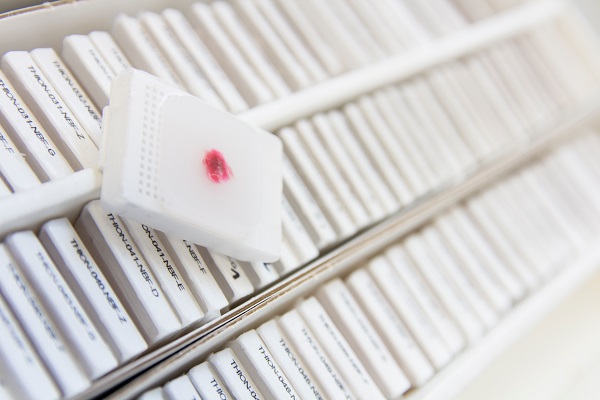
The Clinique Ambroise Paré from Thionville, the Integrated BioBank of Luxembourg (IBBL) and the Cabinet de Pathologie de Thionville Antunes-Baudin have joined forced to establish a collection of tumour tissues that can benefit both patients and cancer researchers in the first France-Luxembourg cross-border tumour biobank collection.
The project also represents the first tumour biobank collection in the Moselle department where collected tissues will be used for future diagnostic as well as research purposes. Biopsied tissue or a tumour, once processed and diagnosed, can be tremendously valuable to cancer researchers, as it is hard to come by and can produce more reliable research results that lab-grown cancer cells. It is also important for the patient who donated it, particularly for frozen tissue, in the event that additional diagnostic tests need to be performed in the future which cannot be performed on formalin fixed tissue.
The collaboration between the Clinique Ambroise Paré, the IBBL and the Cabinet de Pathologie Autunes-Baudin markets the launch of the "Tumorothèque Thionville" project, to preserve these frozen tissues by establishing a diagnostic biobank collection parallel to a research biobank collection.
Within the diagnostic biobank collection ("tumorothèque sanitaire"), IBBL will ensure that the tumour samples are frozen and optimally preserved in liquid nitrogen, in case the clinic needs them in the future.
The frozen tissue may be needed in the case of cancer recurrence, to refine a patient's diagnosis, to guide their treatmet decision of it new diagnostic and prognostic tests cannot be performed on formalin fixed tissue. If the tissue is not required for immediate diagnosis or the diagnostic biobank collection, it will be anonymously integrated with the consent of the patient into the research biobank collection ("tumorothèque de recherche"), enabling researchers to use the samples as a means of studying how diseases develop and finding new diagnostic tools.
The project will not just benefit research and patients, but also all partners concerned; Clinique Ambroise Paré can ensure it operated in line with the recommendations of the French National Cancer Institute (INCa), as well as allow IBBL to grow its collection of cancer samples, which constitutes one of its key missions as a biobank.
The first samples have already been collected for the initial phase of the project and the partners will be looking to collect samples from at least 100 colorectal patients annually. This will be developed and expanded in the future to include urological cancers and possibly other forms. Samples are collected during routine surgeries at the Clinique Ambroise Paré, whilst the Cabinet de Pathologie de Thionville Antunes-Baudin will then perform the diagnosis. In the final stage of the process, the frozen samples will be delivered to the IBBL to be stored. The samples will remain anonymous, meaning that the biobank and researchers are not able to identify a sample donor.
The project forms part of the will of governments in the Greater Region of Luxembourg to develop closer interregional cooperation in the medical and research fields.
Photos by IBBL








